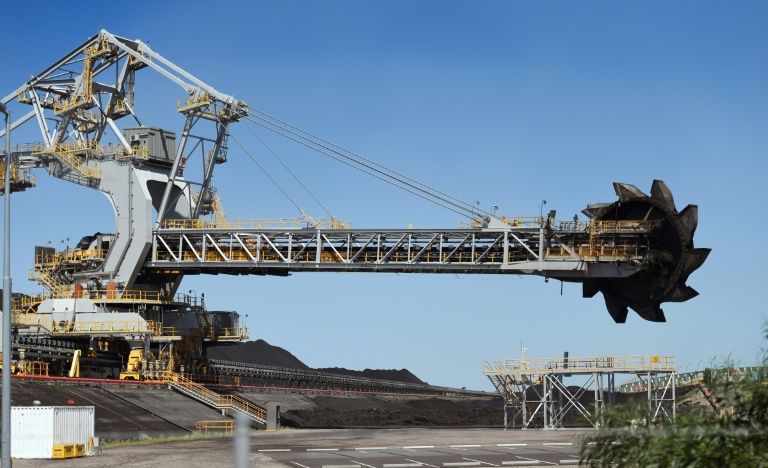Australia seeks answers on reported Chinese coal ‘ban’
Sydney (AFP) – Australia on Tuesday called for China to clarify whether restrictions have been placed on the import of Australian coal, a potentially significant hit to the already struggling economy Down Under.
Trade Minister Simon Birmingham said he had asked via diplomatic channels whether China had instructed its companies to stop buying Australian coal — a business worth around US$10 billion a year — as political punishment.
“I’ve had discussions with the Australian industry, and we are making approaches to Chinese authorities in relation to that speculation,” he told Sky News.
Birmingham stopped short of confirming that an unofficial coal embargo had been introduced, but his comments give credence to rumours that have swirled in the sector for weeks.
“I don’t want us to get ahead of ourselves in terms of the speculation there, but we are working with industry and taking action and having discussions there with China,” he said.
Several trade publications including S&P Global Platts have reported that Chinese state-controlled energy providers and steel mills had received a “verbal notice” from the government to stop buying Australian coal.
It is the latest flare-up in a relationship that in recent months been peppered by trade rows and spy scandals.
A ban on Australian coal could have serious implications for the country’s resource-dependent economy, which is already in its first recession in almost 30 years.
It would also be a blow to Australia’s conservative government, which has swatted aside environmental concerns to heavily promote the faltering coal industry in order to safeguard political support in key parts of the country.
Australian ministers have said they struggle to make contact with their Chinese counterparts, as Beijing has put relations into deep freeze.
Their ties have soured considerably as China has become more aggressive in pursuing its interests overseas.
After Australia called for an investigation into how the coronavirus outbreak began, Beijing responded by threatening Australian wine, beef and barley exports.
Beijing has also warned people not to visit Australia for study or tourism — a vital economic sector — alleging anti-Asian racism in the wake of the pandemic.
Birmingham expressed hope that the coal issue would resolve itself.
“We have over recent years seen that there’s a pattern that has involved previous disruptions to the flow of Australian coal into China,” he said.
“But the market has then recovered as a result of a range of different factors including the application of some domestic quotas, it seems, in the Chinese system.”
Disclaimer: Validity of the above story is for 7 Days from original date of publishing. Source: AFP.


